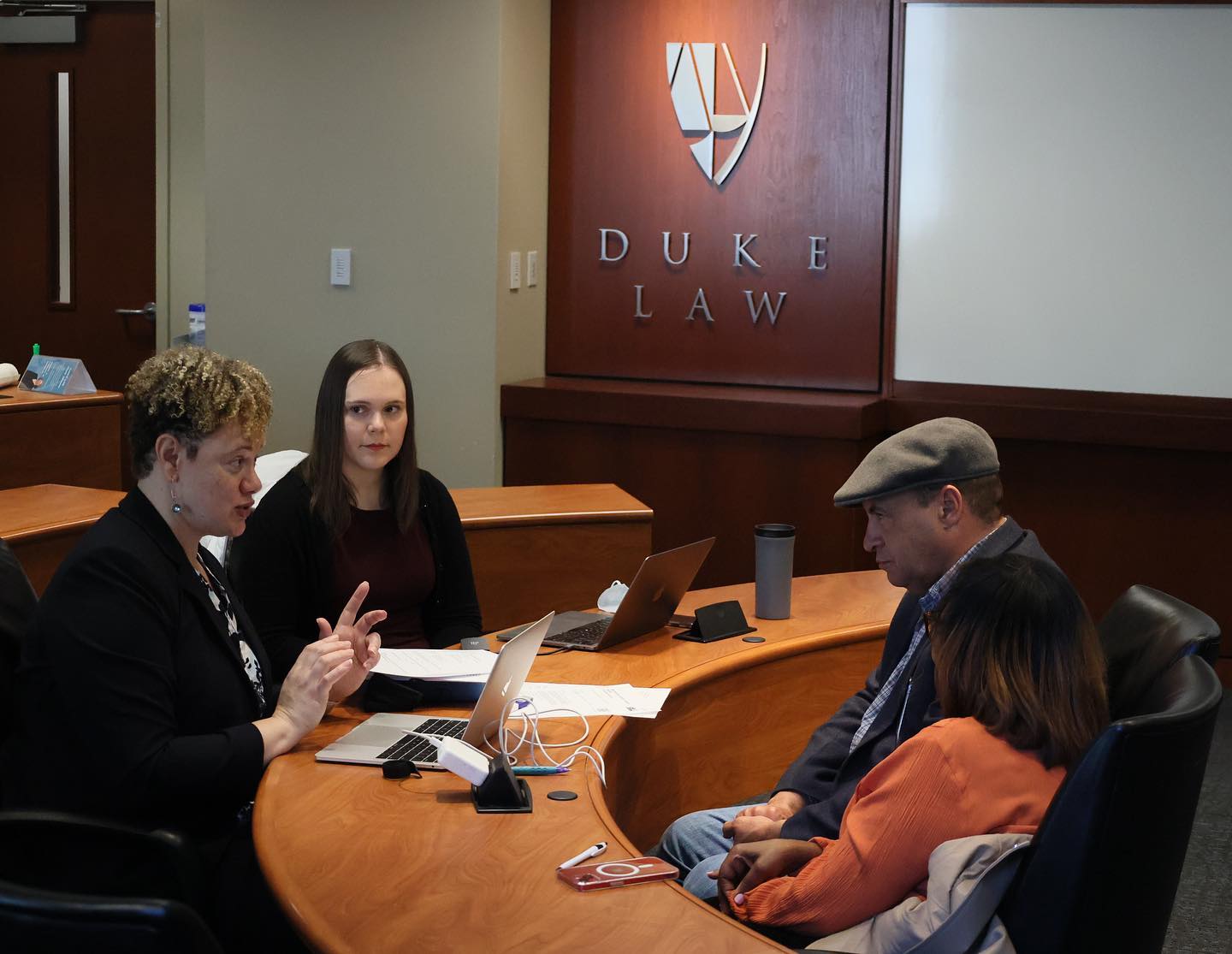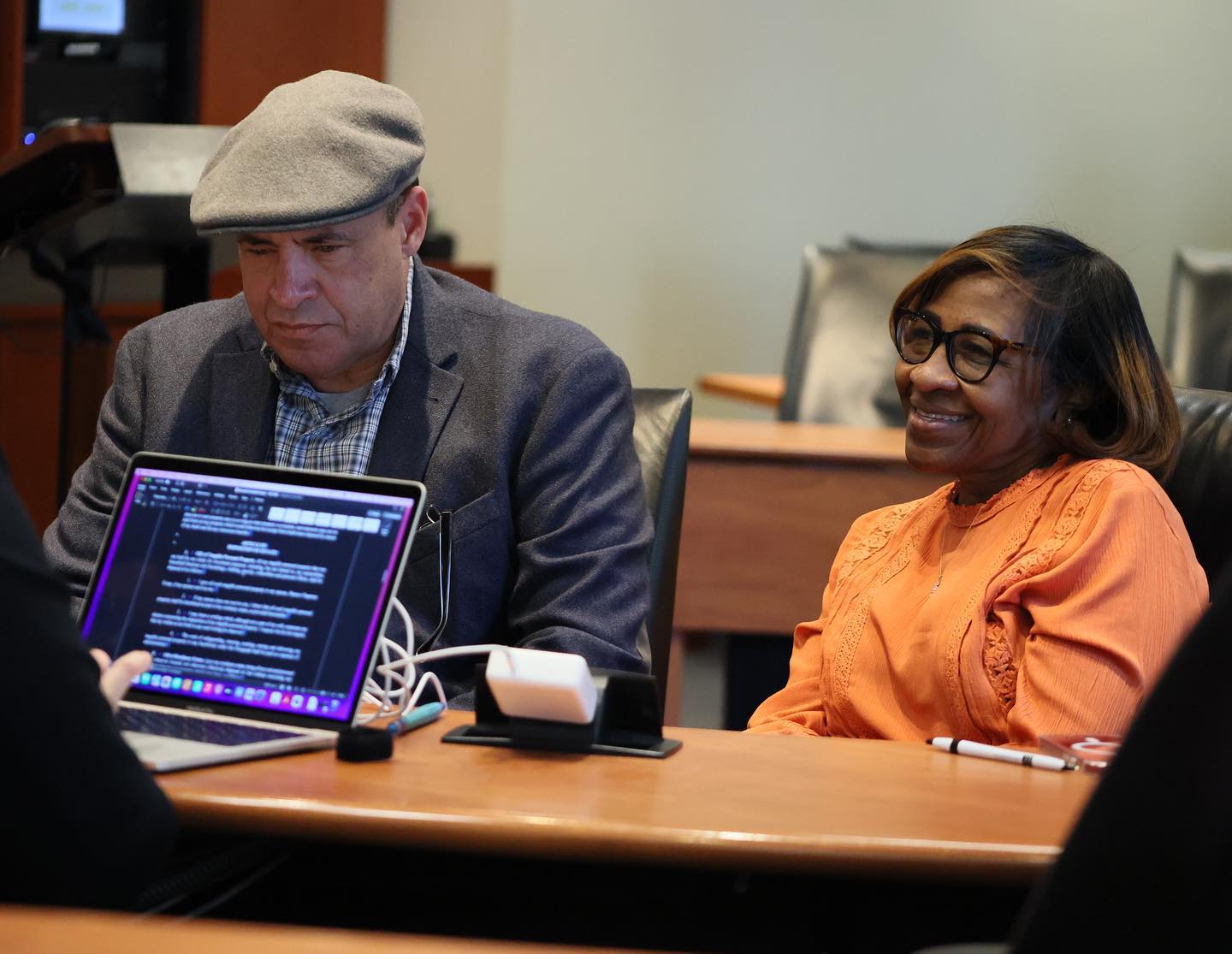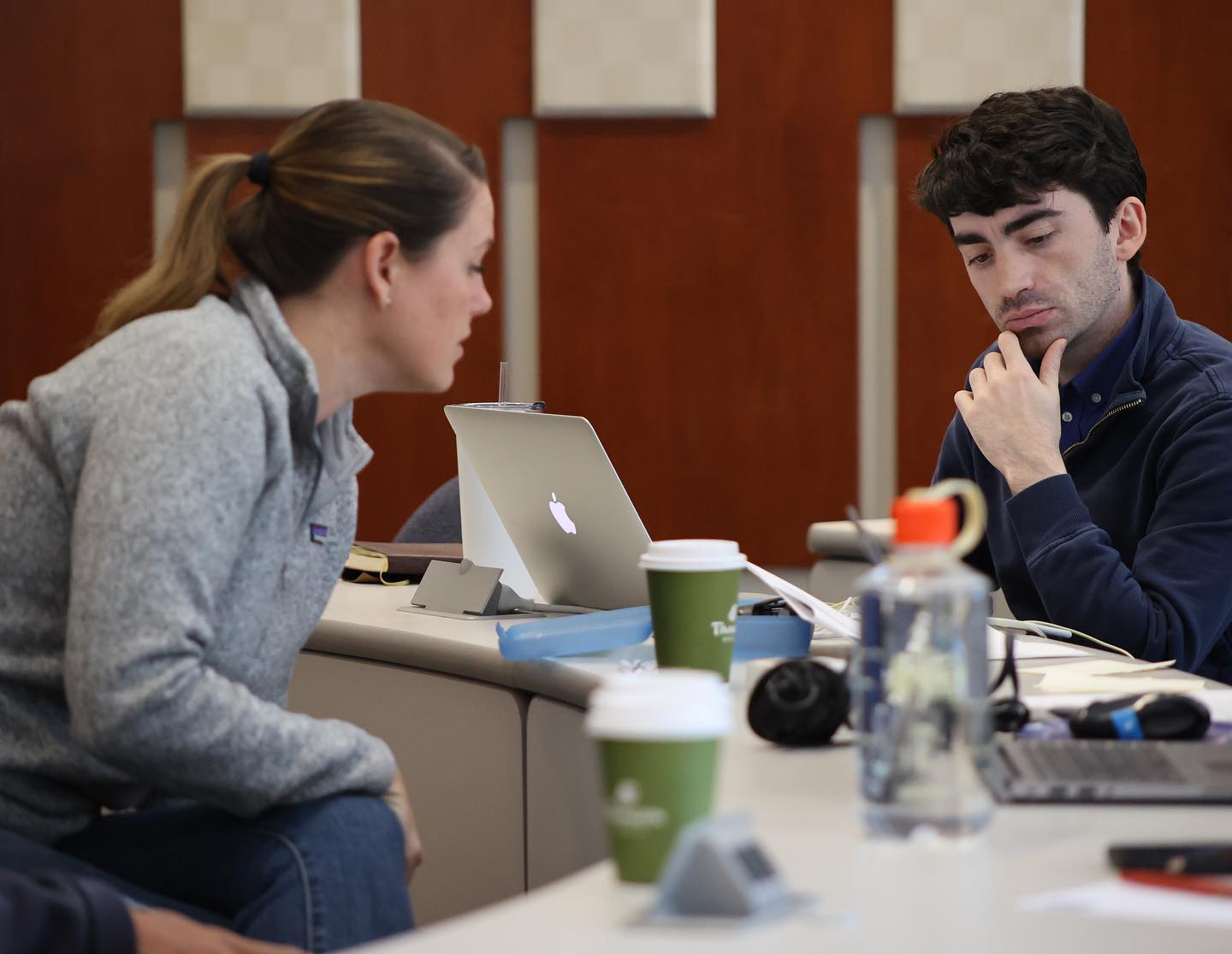In-person Wills for Heroes clinic returns to Duke Law School
Students are partnered with attorneys to gain experience working with a client and preparing legal documents, while providing first-responders with a sense of relief.
 Clients with Tom Murphy '23, Susan Murley '24, and attorney Kimberly K. McKenzie (DLA Piper)
Clients with Tom Murphy '23, Susan Murley '24, and attorney Kimberly K. McKenzie (DLA Piper)
On Saturday, April 2, Duke Law School hosted its first in-person Wills for Heroes (WFH) clinic since 2019, with student volunteers working alongside volunteer attorneys and notaries to draft simple wills and other essential legal documents for Durham County first responders.
Started in 2001, in the wake of the 9/11 attacks, WFH is a nationwide program that provides opportunities for first responders, including firefighters, law enforcement officers, and EMTs, to meet with lawyers and obtain estate planning documents free of charge. The North Carolina Bar Foundation (NCBF) manages the North Carolina arm of the program, holding clinics throughout the year and partnering with local law schools when possible to provide students with the opportunity to hone their skills working with clients and preparing legal documents.
“Meeting with a client, interviewing a client, assessing a client’s needs, and helping to answer questions and provide direct resource information, those are really important skills that will serve students well in their day-to-day profession, but also help them feel comfortable as they enter practice to continue to serve through pro bono work,” said NCBF Senior Director Kim Bart Mullikin ’02.
Prior to the clinic, students received training on how to complete the documents. At the clinic, in addition to working with an attorney, some students acted as witnesses when documents were notarized at the end of each client’s visit.
Madison Santoli ’23 spearheaded this year’s effort, building off her “memorable and fulfilling” experiences at Duke Law’s Health Justice Clinic and as a student leader at the Health Care Planning Project. She points to the Health Justice Clinic as an important reason for why she chose to attend Duke Law.
“For me, working with clients helps to bring a sense of perspective to everything that we’re doing,” Santoli said. “I find that it grounds me in reality. It helps me to remember what this is really all about and what the legal profession can do, and how it can serve people.”
Santoli first learned about the WFH clinic from friend Amanda Joos ’23 and then contacted Assistant Dean of Public Interest and Pro Bono Stella A. Boswell to ask if it would be possible to resume the clinic at the Law School. Boswell immediately jumped on board.
“These clients are people whose lives might be at risk in the line of their professional work. And so for them, having these things in place might have some additional meaning that maybe not all of us think about as frequently,” Boswell said.
At the start of spring semester, Santoli reached out to the NBCF, speaking with Mullikin and Pro Bono Clinics Attorney Alex Rogers, who manages the Foundation’s WFH program.
Rogers said, “We were really excited to be able to come to the Law School, have the students sit down with the attorney volunteers, and actually experience interviewing a client or experience going through the document drafting app itself and seeing everything start to finish, essentially.”
The wife of a first responder, Rogers said WFH and the individuals and couples helped by the program are “near and dear to my heart.”
“I have first-hand experience understanding the relief that they feel in having these documents prepared and having these matters settled in the event that something does happen in the line of duty,” Rogers said.
When the pandemic hit, the NCBF adapted its in-person clinic for online sessions. Since then, WFH has increased its use of technology, offering hybrid clinics, and added more volunteer attorneys. As a result, WFH has expanded its reach throughout North Carolina, with the goal of offering two to four clinics per month and nearly tripling the number of clinics offered annually.
“It’s really allowing us to go all over the state, even to the small counties,” Rogers said. “In the past we’ve stayed in the larger municipalities. And now, a few weeks ago, I was in Randolph County in Asheboro and I’ve been in Goldsboro in Wayne County and places where we, in the past, didn’t have the capacity volunteer-wise with the attorneys or with the technology to be able to serve those areas.”
Boswell said, “The students tend to find it really rewarding to meet with a client, to get to know the person that they’re assisting, and to learn from the supervising attorney who might model for them a better way to ask a question or a better way to explain something without using unnecessary legal jargon.”
Mullikin added: “I truly believe that we as professionals–as attorney professionals, as paralegal professionals, and as law students who are entering this profession–have a commitment to serve our communities.”








